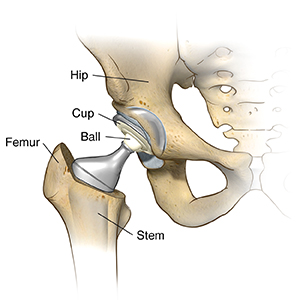Total joint replacement testing and treatments
BJC HealthCare has a dedicated team of health professionals with one goal—to get you moving toward a healthier you. We offer:
Bone-sparing procedures
You may benefit from a partial joint replacement or resurfacing if only part of your joint is damaged. Surgeons can replace only the worn-out portion of your knee, for example, while preserving healthy bone and ligaments surrounding the joint. This approach leads to a quicker recovery and better range of motion after you heal.
Joint replacement revisions
Our experts can repair, restore, and replace previous total joint replacements.
Pain management
Our pain management regimen greatly reduces postoperative pain and increases early mobility for total joint replacement recipients.
Robotic surgery
BJC HealthCare experts were among the first in the St. Louis region to perform partial knee replacement using robotic surgical technologies. The method helps surgeons position the replacement with increased accuracy.
Rehabilitation
Our physical therapists communicate frequently with surgeons to deliver a rehabilitation program specific to your needs. Tools available to support your recovery include aquatic therapy, nutritional counseling, occupational therapy, and physical therapy.

